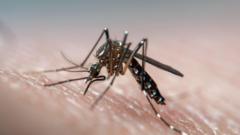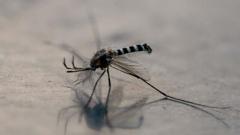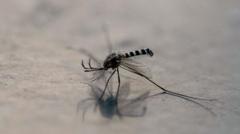Scientists have stumbled upon a novel strategy to combat mosquito-borne diseases like dengue, yellow fever, and Zika: rendering male mosquitoes deaf, thereby hindering their ability to mate effectively. This intriguing method, developed by researchers at the University of California, Irvine, involves a genetic alteration that disrupts a specific hearing pathway in male mosquitoes.
Mosquitoes engage in aerial copulation, with males relying heavily on their auditory skills to locate females by detecting the sound of their wingbeats. In this groundbreaking experiment, they targeted a protein known as trpVa, crucial for the insect's hearing ability. As a result, the genetically modified male mosquitoes exhibited no response to the wingbeats of potential mates, even when placed in the same environment for several days.
Since female mosquitoes are the vectors responsible for transmitting diseases to humans, reducing their reproductive success is vital to controlling their populations. The researchers observed that while non-mutant male mosquitoes successfully mated and fertilized almost all female mosquitoes in their vicinity, the altered males failed to display any mating behavior.
The study, published in the journal PNAS by a team from the University of California, Santa Barbara, highlighted the efficacy of the gene modification, noting that the disruption resulted in an absolute cessation of mating attempts among the deaf males. Dr. Joerg Albert, a mosquito mating expert from the University of Oldenburg in Germany, commended the approach, emphasizing that targeting the sense of hearing may prove to be a promising avenue for mosquito control strategies.
Dr. Albert cautioned, however, that while eliminating the hearing capacity of male mosquitoes could drive down female populations, careful management of the method is necessary. He noted that the results of this study provide the first direct molecular evidence that sound is essential for mosquito reproduction.
Another strategy in use includes the release of sterile males in areas plagued by mosquito-borne diseases, but researchers must balance control efforts with ecological considerations since mosquitoes play an integral role in the food chain and as pollinators. Addressing public health and ecological dynamics continues to be a key focus in the fight against mosquito-spread illnesses.











